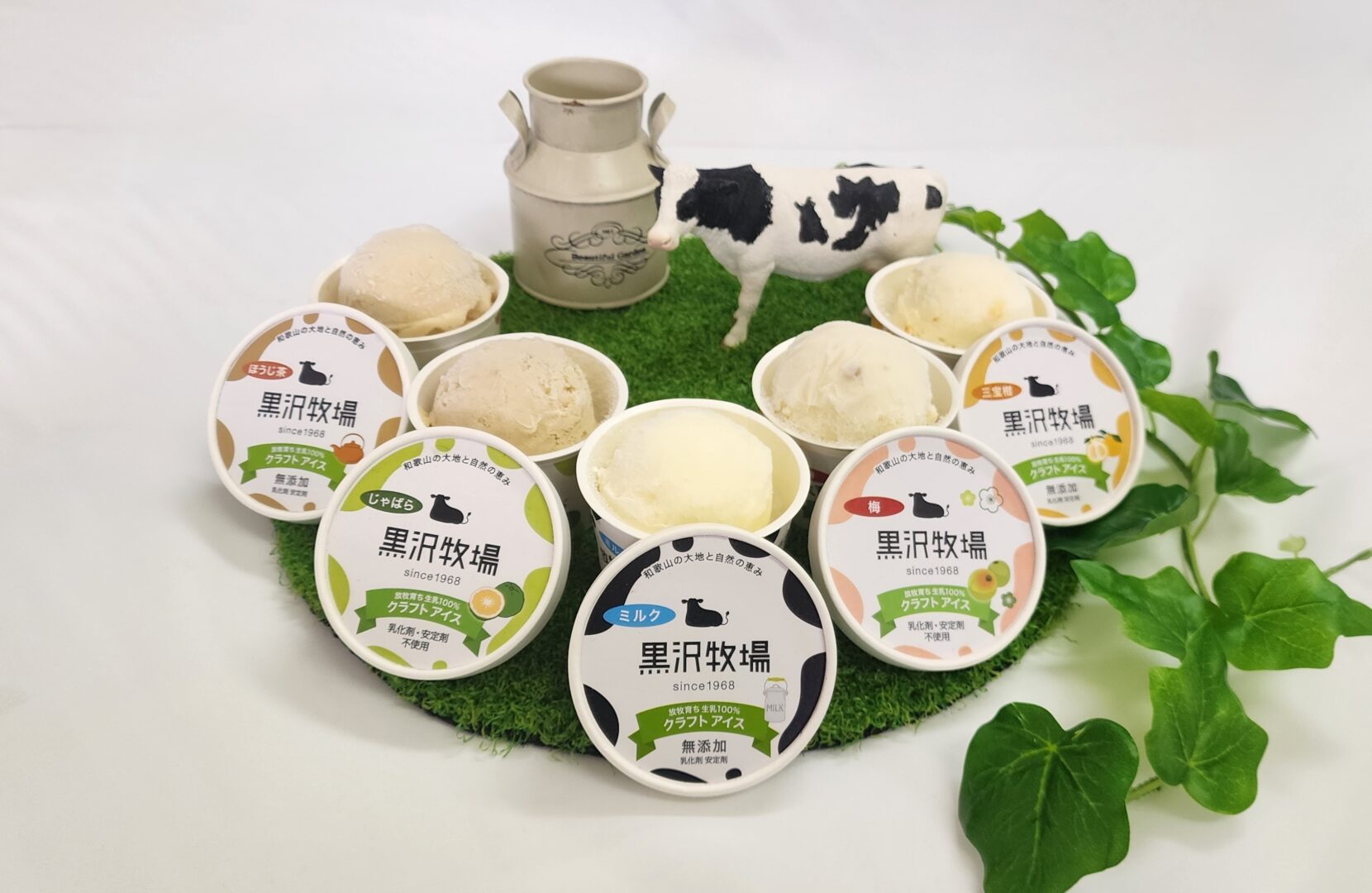
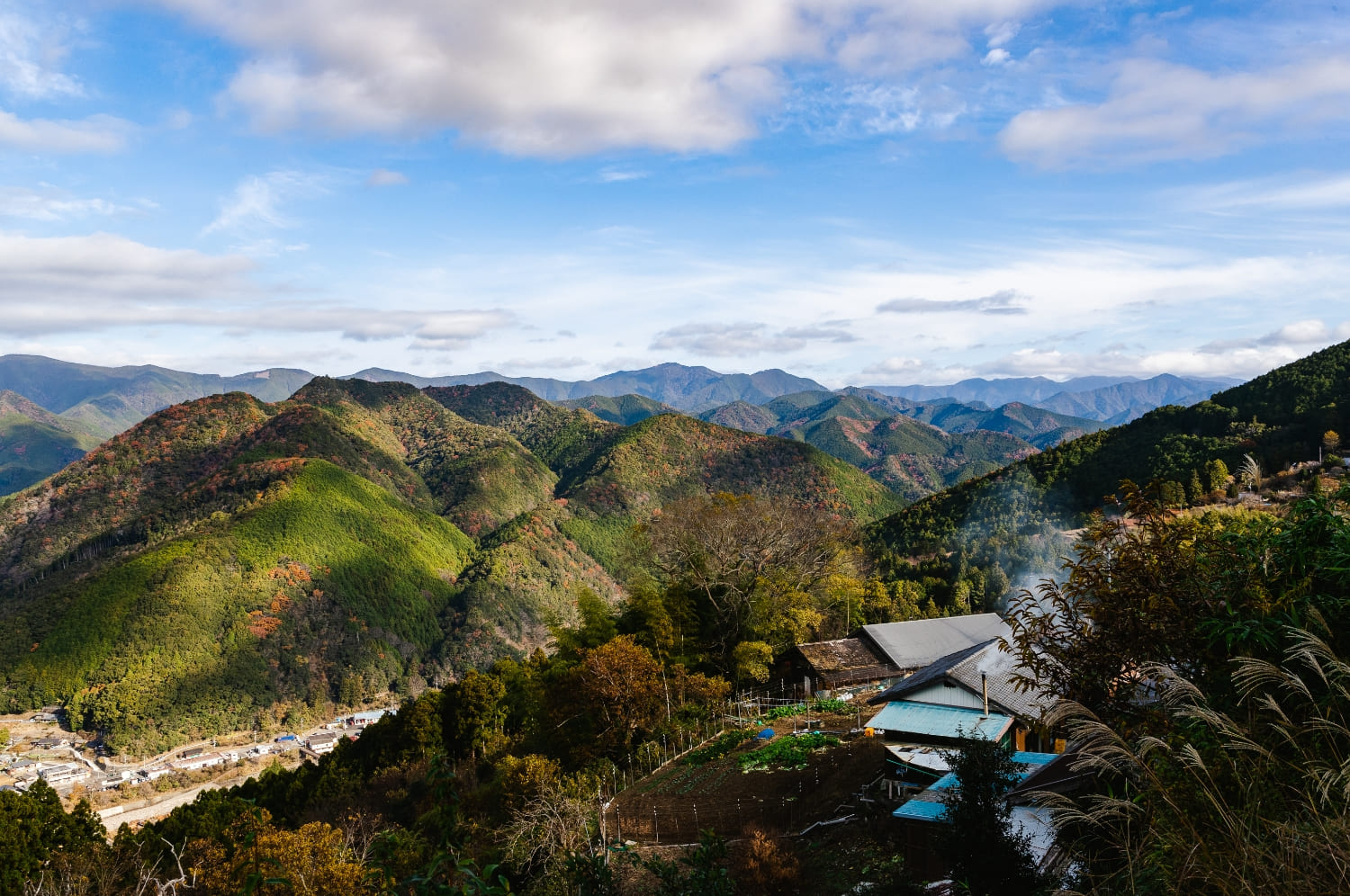
From substandard to shining gems. The thought that went into Ito Farm’s ‘dried mandarins’.
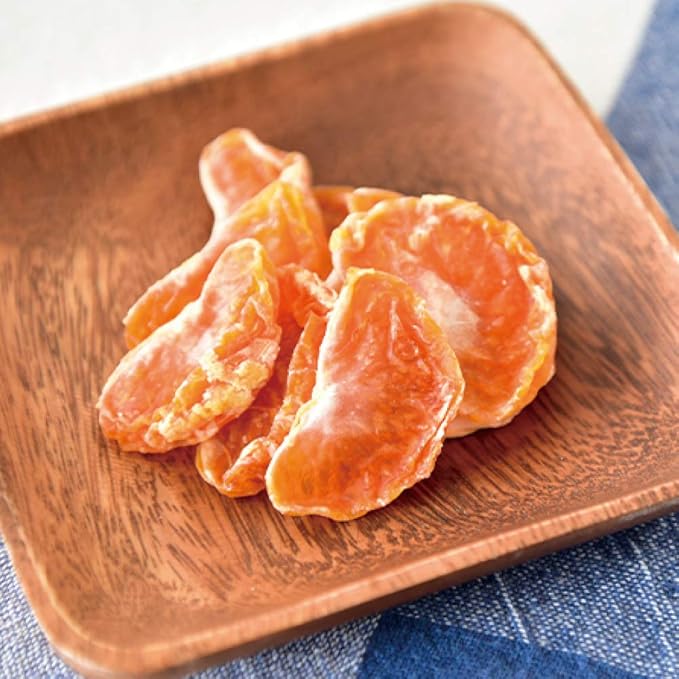
RETREAT TAKAHARA offers an ‘All Inclusive Sweets’ menu with a total of 12 different kinds of Wakayama’s famous sweets, which you can enjoy freely in your room. We are proud to recommend all of them, but we wondered which one was the most popular. This was a simple question for our staff, so we held a ‘General Election for Sweets’ again last year.
The winner of the second general election was Ito Farm’s dried mandarin oranges. The flavour of the ingredient itself can be felt, and the moment you put it in your mouth, the sweetness and sourness spreads softly.
‘To win first place amongst the carefully selected sweets on offer means recognition. I am really happy.’
So says Akihiro Ito, the fourth generation of Ito Farm, which has been dedicated to mandarin orange production in Arita, Wakayama, and has passed down its techniques from generation to generation since the mid-Meiji period. We interviewed him about the secret of his popularity and his commitment to his mikan, with his thoughts on his life in Arita and his attitude of respecting the ingredients.
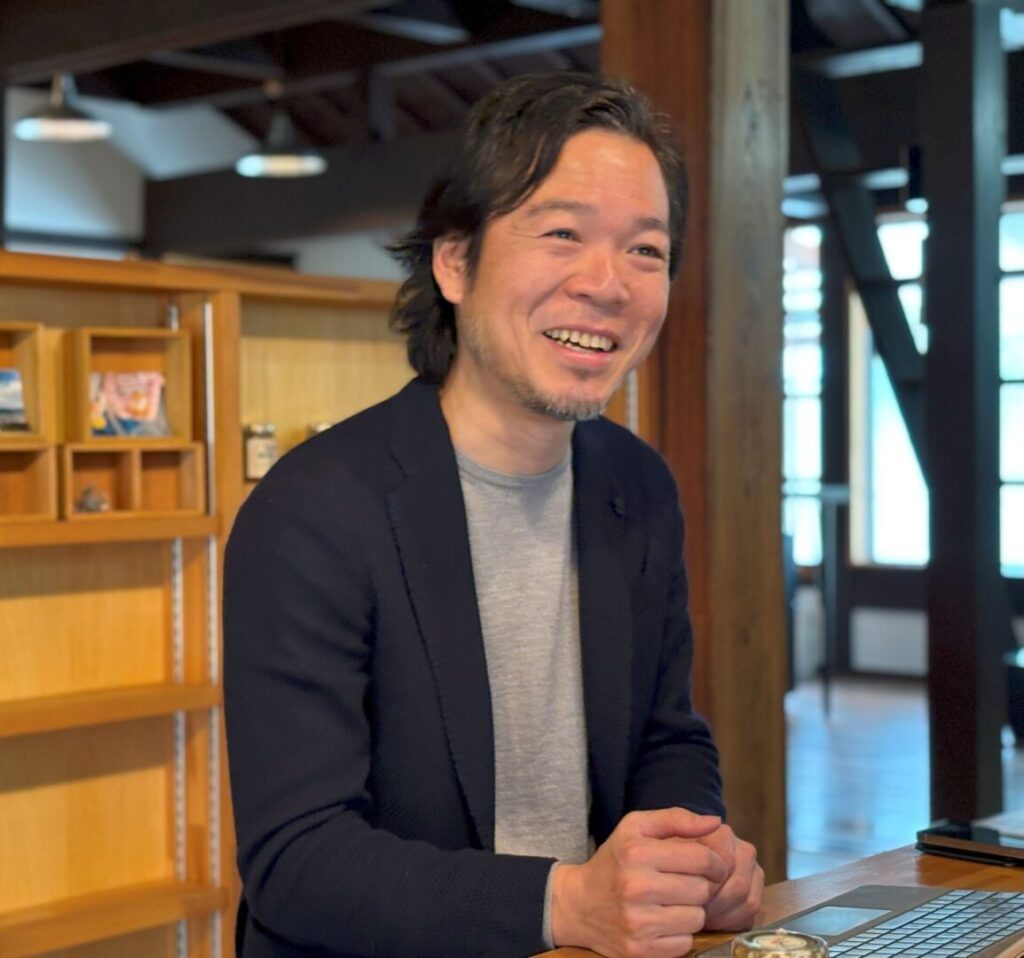
The challenge of processed products
The history of Ito Farm dates back to the mid-Meiji period (1868-1912), and for more than 100 years the farm has been sincerely involved with mandarin oranges. However, about 35 years ago, the production of mandarin oranges increased nationwide and the price plummeted. Under difficult circumstances, the farmers decided that they could not protect the community and farmers with fresh mandarins alone, so they took up the challenge of producing processed products.
The first thing they did was to make juice from ‘out-of-spec mandarins’, which could not be marketed because of their poor appearance. This gave the fruit, which had previously been thrown away, a new value.
Dried mandarin oranges were born from the desire to eliminate waste.
When the juice is squeezed, the peel remains. At Ito Farm, even the peel is not wasted, but used as peel confectionery and marmalade. In order to make the peels even tastier, a ‘decompression dryer’ was introduced. By drying the peels slowly at low temperatures without using strong heat or wind, we have succeeded in finishing the peels without damaging their flavour or colour.
This process was applied to the idea of ‘What if we dried out-of-spec mandarins themselves?’ This idea led to the creation of ‘dried mandarin oranges’.
The oranges used are Arita mandarins that may look blemished but are still fine on the inside. Full of juice and rich in flavour, this is a gem of a product that has turned ‘mottainai’ into deliciousness.
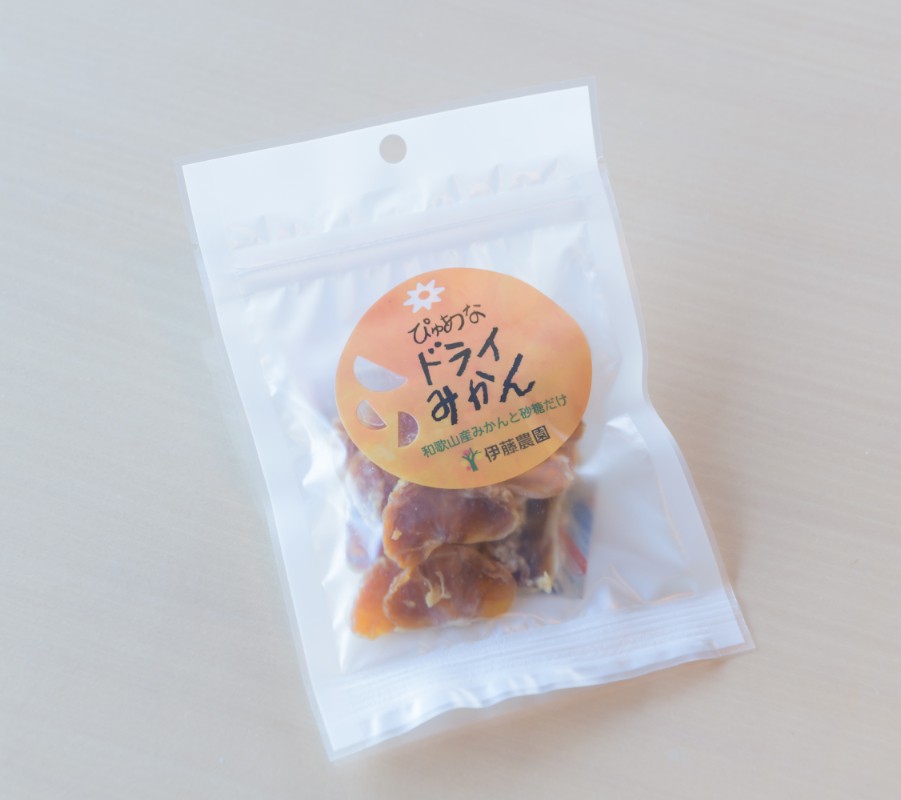
The secret of the taste is ‘the ingredients themselves’.
Ito Noen has a strict corporate policy of ‘no additives’ and maximises the natural taste of the ingredients. The only ingredients used in the dried mandarin oranges are Arita mandarins and granulated sugar. No preservatives or other food additives are used, making it safe for everyone from children to the elderly.
Special care is also taken in the peeling process. While there are machine-peeling techniques, ‘using a machine means applying heat. Mandarin oranges taste like they have been boiled if they are warmed up’, so all the work is done by hand. One by one, they are carefully peeled and finished.
A new form of mikan that can be enjoyed all year round
Dried mandarin oranges were created as a product that brings out the new appeal of Arita mandarin oranges.
Ito says: ‘Through the use of out-of-specification products, we want to bring the appeal of Arita mandarins to even more people. I would like to promote the product not only in Japan but also to the rest of the world,’ says Ito.
He passionately states his future goal: ‘I hope that processed products such as dried mandarin oranges will become a new option for mandarin orange lovers, and that they will be enjoyed not only during the season, but all year round.
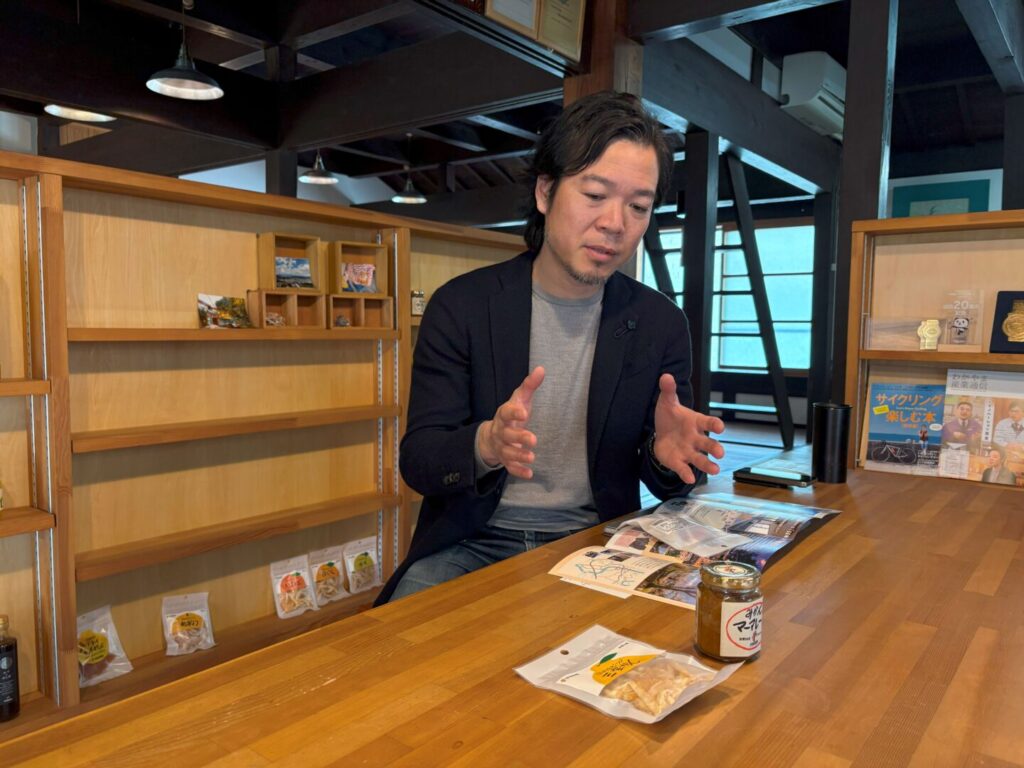
Rare citrus menu in a directly managed café.
Ito Noen’s directly managed café, Cafe Mikanoki, offers a menu that uses plenty of Wakayama citrus fruits, such as Mikan Omelette Rice and Refreshing Lemon Carbonara.
When you stay at SEN.RETREAT, be sure to stop by the directly managed café, which is surrounded by mandarin oranges.
Address : 518 Takigawara, Miyahara-cho, Arita City, Wakayama Prefecture
Opening hours: 11:00 – 17:00 (L.O. 16:30)


